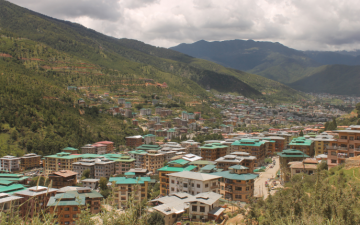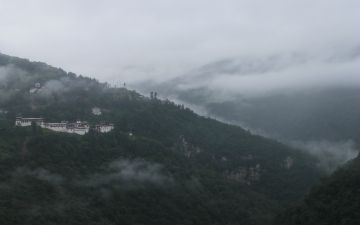A small and mountainous country surrounded by the superpowers of China to the north and India to the south, Bhutan occupies a delicate place in Asia. Even though it is so environmentally conscious that it is widely considered as carbon-neutral, Bhutan is not immune to the effects of global climate change exacerbated by its larger neighbors. Rising temperatures and erratic weather patterns will likely cause severe consequences to one of Bhutan’s most valuable resources—water. Bhutan’s rivers are its life force: beginning as glaciers in the Himalayas and winding through to the tropical foothills bordering India, some eventually joining with the mighty Brahmaputra, they sustain thousands of people. Rivers supply drinking water, irrigate crops, support cities, and generate electricty via hydropower—the greatest contributor to Bhutan’s GDP.
Crucial for Bhutan’s development, hydropower is also susceptible to a changing climate. Glacial lake outburst floods, intense monsoon events, extreme winter droughts—all have the power to bring devastating consequences to hydropower. Deeply in debt to India for hydropower loans, and electricity only sold to India to help meet its own growing population, Bhutan cannot afford to slow its electricity production.
Scheduled to graduate from the UN’s Least Developed category by 2023, hydropower is a critical component of Bhutan’s development process, supporting growth in jobs, education, health care, and overall Bhutanese quality of life. In a country that has never contributed to climate change, its harmful impacts will still likely reverberate across Bhutan and alter its future on the geopolitical stage.



